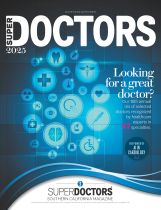National Institutes of Health (NIH)
January 10, 2017
Middle ear infections, or acute otitis media, are a common childhood illness. They’re usually caused by bacteria and can treated with antibiotics. However, overuse or inappropriate use of antibiotics may lead to the emergence and spread of antibiotic resistance.
A team led by Dr. Alejandro Hoberman at the University of Pittsburgh investigated whether a shortened course of antibiotics would work as well in young children as the standard 10-day treatment and reduce the risk of antibacterial resistance. The research was supported by NIH’s National Institute of Allergy and Infectious Diseases (NIAID) and National Center for Advancing Translational Sciences (NCATS). Results were published in the New England Journal of Medicine on December 22, 2016.
The team enrolled 520 children, ages 6 to 23 months, diagnosed with middle ear infection based on strict criteria. The children were randomly assigned to receive antibiotics (amoxicillin-clavulanate) for either 5 days or 10 days. Those in the 5-day group then took a placebo for 5 additional days. The study was double-blind, meaning the researchers, clinicians, and children’s caregivers didn’t know which regimen each child received. The investigators monitored the children's symptoms and signs of infection during treatment and at follow-up visits after the treatment ended.
The scientists found that 77 of the 229 participants (34%) in the 5-day treatment group experienced worsening symptoms and signs of infection, compared to 39 of 238 (16%) in the 10-day treatment group. Following treatment, the researchers examined bacteria samples from the children's nose and throat cavities. Although the team expected that shortening the medication time would decrease the potential for antibacterial resistance, there was no significant difference in levels of resistant bacteria between the treatment groups. In addition, there were no differences in adverse effects between the groups.
“The results of this study clearly show that for treating ear infections in children between 9 and 23 months of age, a 5-day course of antibiotic offers no benefit in terms of adverse events or antibiotic resistance,” Hoberman explains. “Though we should be rightly concerned about the emergence of resistance overall for this condition, the benefits of the 10-day regimen greatly outweigh the risks.” This study did not look at outcomes for older children or those with less severe ear infections.

